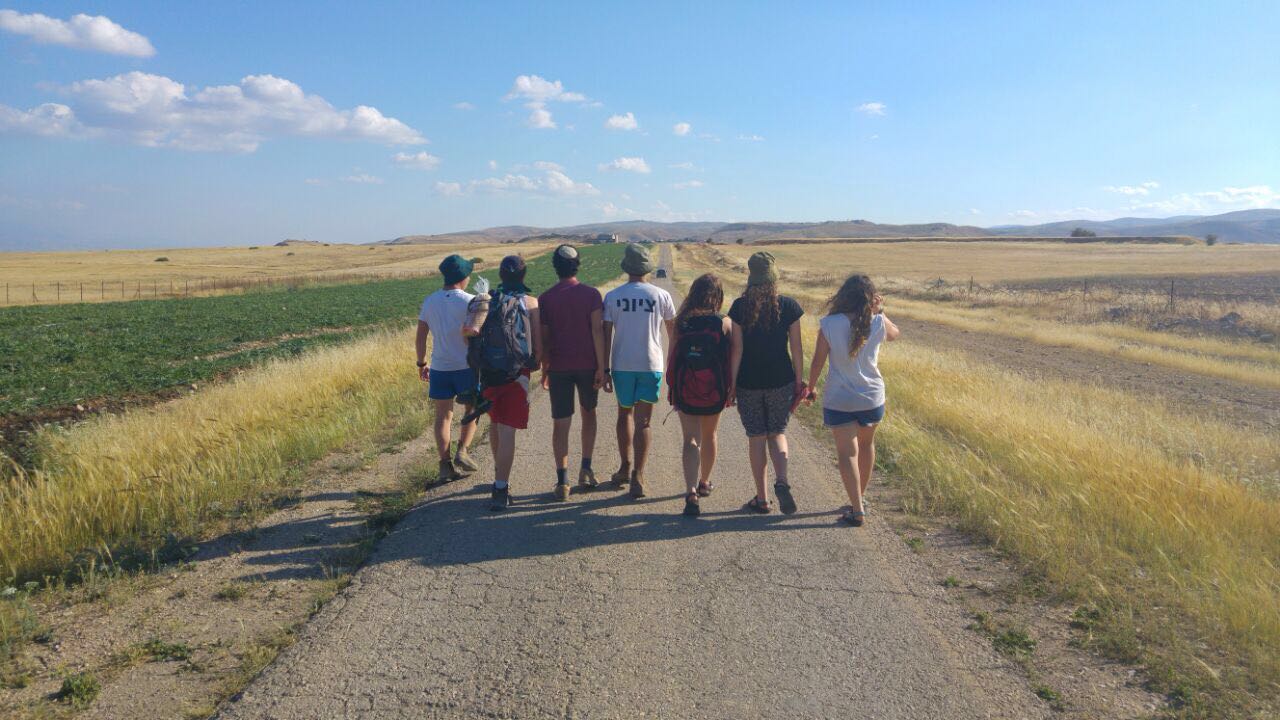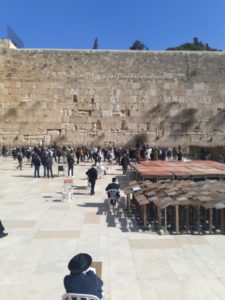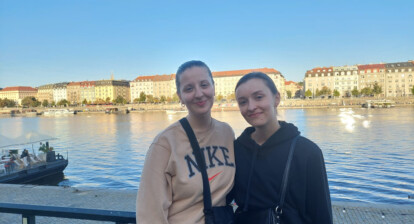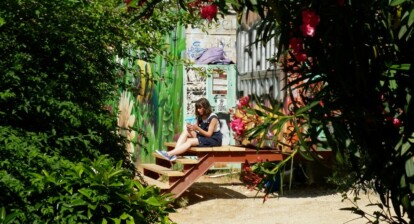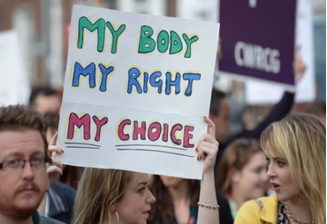Israel is defined as a “Jewish and Democratic State”. What does that mean for people’s everyday life? Tzivia shares her perspective on the triangular relationship between society, institutionalized religion and personal belief in Israel and gives an insight into the tensions between ideas and values of a modern liberal democracy and religious traditions.
He’s a great guy; kind, smart, he loves learning, travelling, and happens to be gay. He is an activist in the community, helping LGBT youth to develop leadership skills. He also would like to get married someday and start a family.
The problem: He would not be able to do that in his home country. Same sex marriage is illegal and there doesn’t seem to be much hope for change.

She really wanted to marry him back then. Maybe they met during military service, maybe they met in their youth group, and maybe they were set up. They were happy, they suited each other well, they had a good life ahead of them and so they got married. Things went well for a while – until the day everything changed. She realised she wasn’t happy in the marriage and wanted to get divorced.
The problem: The law gives him the solitary power to make this decision. A divorce in Israel is only possible if he agrees and initiates it, a woman is not legally entitled to make the decision on her own. Maybe he wants her to stay with him, to stay his. He can hold her hostage – bound to a marriage she doesn’t want to be in. She’s an “Aguna”- anchored.
She is a brilliant young woman who has recently enlisted for her mandatory military service. She chose to serve as a combat soldier in a search and rescue unit. She is outstanding in her training and would like to become a medic.
The problem: Throughout the whole country there are large demonstrations against women in the military. People, including those in power, are claiming that the fact of women being in military, especially in combat, is incompatible with the core values of the state.
He works as a cleaner in a high school. It’s an intense job that takes up most of his time and energy. Only at the weekends he has time to visit his grandchildren who live quite far.
The problem: It is illegal for public transport to run during the Sabbath, starting Friday evening and ending on Saturday evening. To visit his family, he would have to take a taxi which would cost him the equivalent of 100€ or even more – an amount he can’t afford.
Religious Secular quo
These are examples of people’s fates that I consider problematic in liberal and democratic states but are very common in the democratic state of Israel. These problems are related to the “Religious secular quo“. When the state of Israel was established as a land for Jews (like that it is stated in its proclamation of independence), the founders soon realised that the wide spectrum of Jews –some of them practicing religion and some not – might lead to conflicts regarding the character of the state. As Israel was mainly founded by secular people, practicing Jews felt the state would have no religious character and that there would be no place for them. This is the reason for an agreement that had been established – a status quo deciding that religious law should be involved when it comes to issues related to marriage and divorce, businesses being closed on the Sabbath, educational institutions, and kosher food in state institutions.
“I am a Practicing Jew”
I am a practicing Jew. I have been all my life. I was born into a modern-orthodox family and with much learning that still goes on, I have chosen to stay in this community. This doesn’t necessarily mean that I am a believer, although I usually am. Rather, I do my best to stick to “Hallakha” – the many laws of the Jewish Religion such as not working on the Sabbath, eating only kosher, and praying every day. Apart from the laws of Hallakha there are some “Mitzvas” – other laws and commandments that are important to me: I connect to these spiritually and emotionally much more than others do. For example, prayer for me also means a time of meditation and connecting to myself, the Sabbath serves as a day of rest and as an opportunity to spend time with the family, and the different laws of charity “Tzedakka” are an opportunity to give something back as well as discipline myself to adopt a more generous attitude.
Since I am a practicing Jew, one might suppose that I am happy with the laws stemming from religion, but that is not the case. Israel is defined as a “Jewish and Democratic state”. This fact is used regularly in arguments both for and against religious laws, while each side chooses to empathise with another part of the sentence – Jewish or democratic. From my point of view, the main problem lays in the interpretation of what the “Jewishness” of the state really means.
State for the Jews or a Jewish State?
To some, Jewish state simply means “a state for the Jews”, being reflected in regulations like “The Law of Return”, stating that all Jews, their spouses, and their children have the right to live in Israel and to Israeli citizenship. In the context of “a state for the Jews”, a basic law (basic laws essentially act as the Israeli constitution) was passed in 2018, calling “Israel a nation State of the Jewish people”. Even this statement which seems clear at first sight, caused a massive controversy among the citizens. In my opinion, a basic law like this is a good thing insofar as it makes the definition of Israel as a Jewish state statutory; it is important that Israel has laws guaranteeing equal rights to minorities and continues to do so.
Another way to define a Jewish state would be “a state which runs on Jewish values”. This can be expressed in laws stemming from the Jewish religion and symbols that are based on the Jewish tradition.
My Israel and the Israel of Others
I tend to side more with the first approach – Israel as a state for the Jews. That leaves me with the question whether our symbols – currently the Star of David, the Menorah from the temple, and an anthem full of Jewish motifs – should stop reflecting Jewish culture and history.
This is a difficult question to me, as I am deeply connected to these symbols and I simply cannot imagine Israel without them – but I still see how they might make minorities feel excluded in their own home country. Throughout the years of living in Israel i have met many people from different minority groups who identify with Israel as a Jewish state. Some even dedicate time, energy, and sometimes their whole lives to serving in the Israeli military. They sing the anthem and salute to the flag. One might say that they have tied their fate to that of the nation and therefore feel more comfortable with these symbols. However, this is a complex issue which needs to be discussed sooner or later.
When it comes to State, Religion and myself, I don’t believe that a democracy can coexist with a state structure that does not separate the church (or in our case synagogue) from the state. In my opinion, a classical liberal democracy is the ideal form of state and therefore liberties should be protected as much as possible. Religious practice should be a choice and I believe one should live that way because one wants it, not because one is forced into such a lifestyle.
“Every Jew has a Place in Israel”
I think the only type of law connected to religion should be the one enabling people to fully practice their religion, for example by making sure all state institutions offer kosher food so anyone can feel like they can take part in state matters. Any Jew in the world, no matter if he or she practices religion, should be sure of having a place in Israel. I am a Zionist, an Israeli patriot, and I’m proud of it. I love my country and this is why I want it to be the best country it can be. This is why I expect my state to function in the most moral way and want it to adopt what I believe to be the most just form of state: a state that allows religious freedom to all.

